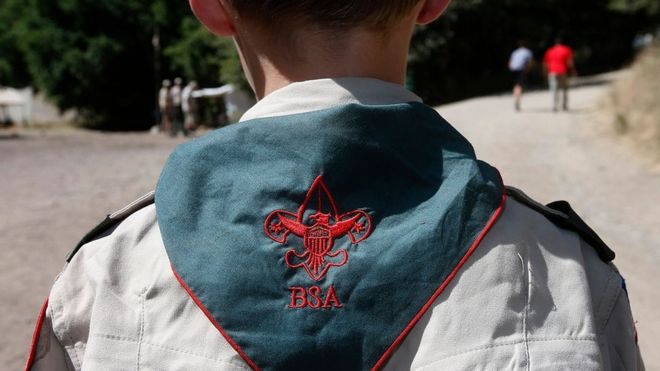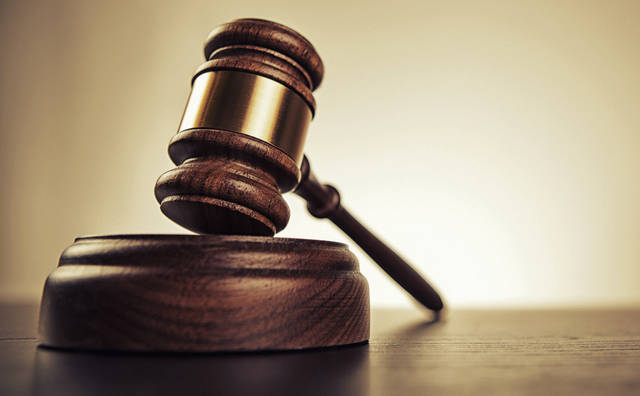The Girl Scouts of the United States of America have filed a lawsuit against the Boy Scouts of America for dropping “boy” from the scout group’s name.
The Boy Scouts of America announced in May they would rename the Boy Scouts programme Scouts BSA as they prepare to allow girls as members.
But the Girl Scouts say the change could erode their brand, calling the move “uniquely damaging” to them.
Their lawsuit seeks damages and an injunction against trademark breaches.
“Only GSUSA has the right to use the Girl Scouts and Scouts trademarks with leadership development services for girls,” papers filed in a Manhattan federal court said.
The switch could “marginalise” the Girl Scouts, the complaint reads. It reportedly says the switch has already caused confusion, with some believing their organisation had merged with the Boy Scouts.
In response, the Boy Scouts of America issued a statement saying it was reviewing the suit, and that it believed “there is an opportunity for both organizations to serve girls and boys in our communities”.
In October 2017, the Boy Scouts board of directors voted unanimously to open the programme to all children.
The Cub Scouts, for ages seven to 10, opened its local clubs to all children in 2018. Boy Scouts, for ages 11 to 17, will follow its footsteps next year when the programme name change becomes official.
But the Girl Scouts protested the decision at the time, with the group’s president Kathy Hopinkah Hannan accusing them of a “covert campaign” to recruit girls to tackle a “well-documented” declining membership.
The Boy Scouts reportedly have close to 2.3m members in the US, down about a third since 2000, compared with around 2 million members for the Girl Scouts.
US mid-terms: Florida restores voting rights to ex-convicts
An estimated 1.2 million Florida residents who have served time in prison have regained the right to vote, thanks to passage of a new state constitutional amendment.
READ ALSO: Cameroon: Amnesty International condemns abduction of pupils, calls for their immediate release
Amendment 4 received 65% of the vote, according to the Miami Herald, changing 150-year-old language in the state’s constitution.
Previously, Florida was one of just four states in the US that automatically and permanently revoked voting rights from anyone who had been convicted of a felony-level crime.
“We celebrate one of the largest expansions of the franchise in our nation’s history,” wrote ACLU of Florida Executive Director Howard Simon in a statement.
Previously, formerly incarcerated Floridians had to wait five years after their release, then apply for clemency from the governor’s office. Since 2011, Republican Governor Rick Scott has only given the vote back to about 2,000 people.
To be eligible, former prisoners must complete their sentences and all the terms of their release, including probation. The language of the amendment excludes those convicted of murder and serious sexual offenses, but supporters still estimate that over 1 million Floridians who have served time in prison would become newly eligible to vote.
A cross-party, grassroots coalition gathered about 800,000 signatures to get the amendment on the 6 November ballot. The measure needed 60% to pass.
Supporters of the amendment argued for months that preventing former inmates from voting unfairly disenfranchised men and women who had repaid their debt to society, and prevented them from fully integrating back into society. They also argued that such laws disproportionately impact African Americans.
The amendment was endorsed by the American Civil Liberties Union, as well as the Koch brothers-backed, conservative group Freedom Partners.
“If we want people returning to society to be productive, law abiding citizens, we need to treat them like full-fledged citizens,” Freedom Partners Chairman Mark Holden wrote in his endorsement.
The move also attracted significant star power from singer John Legend and Orange is the New Black author Piper Kerman.












